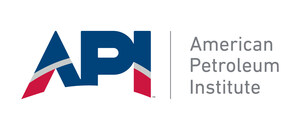Study: Pro-energy policies will fuel U.S. economy, add jobs, lower energy costs
API re-launches Vote4Energy campaign for 2016 election cycle
WASHINGTON, June 23, 2015 /PRNewswire-USNewswire/ -- Pro-development energy policies could add 2.3 million U.S. jobs and add $443 billion per year to the U.S. economy by 2035, according to a study by Wood Mackenzie: A comparison of U.S. Oil and Natural Gas Policies – Pro Development Policies vs. Proposed Regulatory Constraints, released Tuesday by API. Conversely, the study found that a path of regulatory constraints proposed by the Obama administration could lead to 830,000 lost jobs and lead to a decrease of $133 billion per year in the U.S. economy.
"The study contrasts the tremendous difference between the benefits from pro-energy policies and the negative effects of policy decisions that are anti-energy," API President and CEO Jack Gerard said during a speech re-launching API's Vote4Energy campaign. "Energy is fundamental to our society, and thanks to American innovation and entrepreneurial spirit, our nation stands among the world's leaders in energy production. America will remain a global energy leader only if we get our nation's energy policy right today."
Pro-development policies could increase cumulative local, state, and federal government revenue by over $1 trillion and lower average annual household energy expenses by $360 by 2035, according to the study. A path of regulatory constraints would lead to a cumulative decrease of $500 billion in government revenue from 2016 to 2035 and an increase of $242 in average annual household energy costs.
Some of the pro-development policies examined in the study include:
- Increased access to energy resources offshore,
- A more efficient permitting process onshore,
- Quicker approval of energy infrastructure projects, and
- Lifting of the decades old ban on crude oil exports.
Some of the regulatory constraining policies include:
- Proposed ozone rule from EPA,
- Hydraulic fracturing rule from the Bureau of Land Management,
- Proposed rule on tank car safety from the Pipeline and Hazardous Materials Safety Administration,
- Blowout preventer rule from the Bureau of Ocean Energy Management,
- New rules that regulate refinery emissions from EPA, and
- The Renewable Fuel Standard.
"Looking ahead to the 2016 elections, API will be encouraging a comprehensive conversation about our energy future by engaging voters and policymakers through our Vote4Energy education and advocacy effort," Gerard said. "In exactly 72 weeks Americans will cast their vote to decide who will represent them at all levels of government. The electoral decisions we collectively make in 2016 will be fundamental to the trajectory of our nation's energy, economic and national security future. Future generations are looking to us to get our nation's energy policy right and are counting on us to leave them a country that is second-to-none in energy production, security and economic prosperity."
API is the only national trade association representing all facets of the oil and natural gas industry, which supports 9.8 million U.S. jobs and 8 percent of the U.S. economy. API's more than 625 members include large integrated companies, as well as exploration and production, refining, marketing, pipeline, and marine businesses, and service and supply firms. They provide most of the nation's energy and are backed by a growing grassroots movement of more than 25 million Americans.
SOURCE American Petroleum Institute
Related Links
WANT YOUR COMPANY'S NEWS FEATURED ON PRNEWSWIRE.COM?
Newsrooms &
Influencers
Digital Media
Outlets
Journalists
Opted In





Share this article